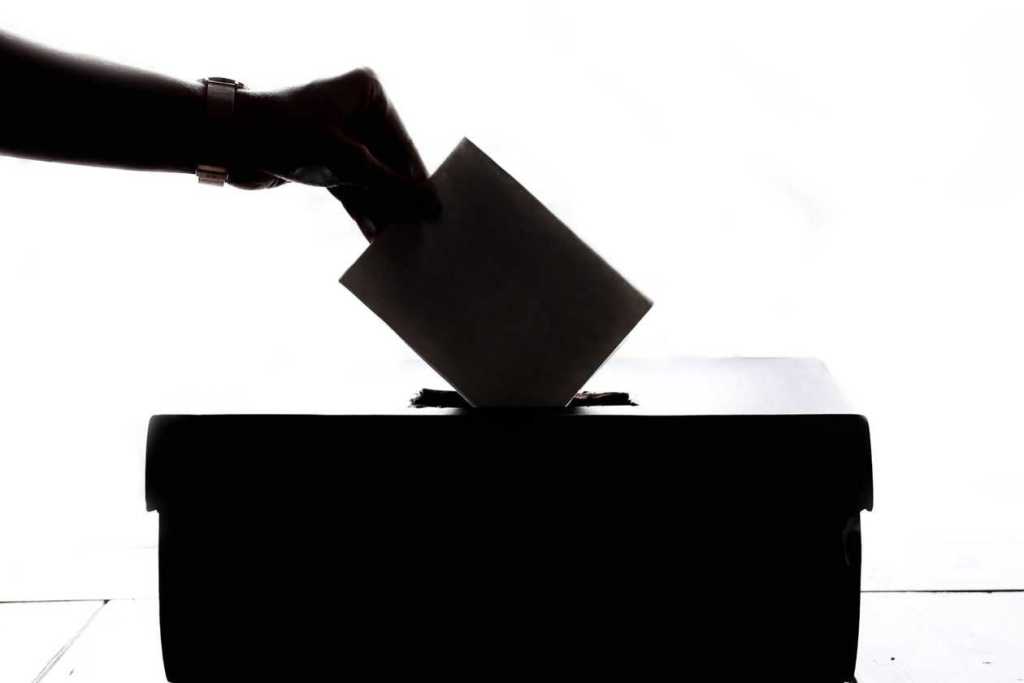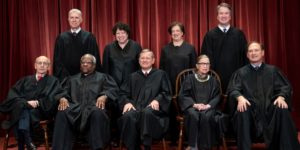
Most Americans know that in the last twenty years the Democrats have won the popular vote twice, but lost the presidential election because they did not achieve the most votes in the Electoral College. In the last election, Secretary Clinton received nearly three million more votes than Trump, only the fifth time in United States history that the national popular vote loser became President.
The Electoral College, the body set up in our Constitution that actually elects the President and Vice President, with each state represented by a number of “electors” calculated by adding together each state's House members and senators in Congress, is truly an anachronism, a product of a time when the nation was young, defined by loose geographic boundaries, and lacking political parties. Indeed, though the College was augmented by the adoption of the 12th Amendment in 1803, it cannot go without notice that it was originally fashioned in a document that defined black people as three-fifths of a person.
In the last election, we worried about a possible ‘tie' in the Electoral College vote, in which case the Constitution says the President is selected by the House of Representatives and the Vice President by the Senate. If that happened, chaos would ensue.
Many have a palpable fear that in this upcoming election in November the Democrats could win ten million more votes, yet still lose the election because of the unfair and outdated system of presidential selection that is the Electoral College. While that could result in an injustice and perversion of democracy, it actually may not be America's worst nightmare.
The worst nightmare that could arise would come at the hands of the very people who are entrusted to cast electoral votes and directly elect the President and Vice President. When Americans are asked how the electors for each candidate are chosen, many assume it is the candidates who anoint their voters in the Electoral College.
That is not true.
In each state, the process is unique and diverges in significant ways. For example, in Alabama, the party apparatus chooses the electors, while in California, each Congressional candidate and Senatorial candidate selects the vast majority of electors. In New York, my home state, electors are a combination of elected party officials and loyalists.
According to the U.S. Constitution, members of the House and Senate are forbidden to be electors. Nor can any “person holding an office of Trust or Profit under the United States.” An interesting description. Does the definition of ‘profit' include defense contractors or even a Peace Corp volunteer, both of whom receive funds from the federal government?
Unlike those applied to other federal elected officials, there is little or no guidance in the Constitution about criteria to be an elector such as age, distribution within a State, gender, etc. Our Constitution leaves it wide open.
Now here is the worst nightmare: the Democratic candidate wins the popular vote and is awarded the most Electoral College votes by only a dozen or so votes. Election is over, right?
Nope. Not if the Republican nominee is Trump.

Only 9 so-called ‘faithless electors' have gone rogue and refused to honor their pledge to support a particular candidate over the past century. However, the possibility of this occurring is real and even became an issue in the 2016 election with several electors suggesting they would support a candidate other than the designated winner in their state.
The United States Constitution does not explicitly require electors to vote for the candidate who won the popular vote for their state. In fact, our Constitution does not even mention a loyalty oath, pledge or requirement to vote how the state voted. Some states have passed laws that require such a loyalty vote, but whether that is enforceable or not is untested. That will soon change.

Right now, the Supreme Court of the United States is considering the “Faithless Elector” case that will decide if electors can decide for themselves who they want to be President no matter how their State votes in the election. Maybe the Supreme Court will dictate that they must and then we have resolved the problem.
Attorney Tom Prol, the past President of the New Jersey State Bar Association and a member of the American Bar Association's governing body spoke to me and said, “The case currently before the United State Supreme Court is highly anticipated and presents a question that has remained unsettled for over two centuries. There are interesting arguments from each perspective. The nation's founders, including Alexander Hamilton, made it clear that Electoral College electors are not supposed to be a rubber stamp, and actually can stand as a last line of defense to an unfit President. Despite the potentially scandalous result that could occur if a group of Electoral College electors deviated from their directed votes, this is actually a scenario the Constitution envisions and likely tolerates.”
Prol added, “The thought of restraints or punishments for someone voting their conscience could be seen by the High Court as an affront to our nation's values. Moreover, because this is a federal Constitutional process, state laws that seek to regulate the process and punish or restrict ‘faithless electors' are vulnerable which is part of the reason the current case is before the Court. However, think of the anarchy that would result if there were no controls in place, and electors were subjected to outside influences and empowered to overrule the will of the people. That, too, is something that would be untenable for the nation and may be seen as going against who we are as a democracy.”
If the court rules that there is no loyalty to the results of the election, then all 538 electors in the Electoral College will be free to vote their personal beliefs. Candidates will bombard the electors to vote against their states' results. Can you imagine the anger, intimidation, blackmail, and economic boycotts that Trump supporters would resort to against some senior citizen in a small town who runs a small business who was just chosen simply because they were a good volunteer? Trump could resort to any despicable tactic to find those twelve people who will change their vote to win the Electoral College despite losing badly in the popular vote.
You only need to look back to Florida in 2000 to remember the nastiness that took place. Robert Shrum, a well-respected commentator and political strategist who occupies the Warschaw Chair as Director of the Center for the Political Future at the University of Southern California says, “As a principle strategist in the Gore campaign, I will never forget how the Florida results were manipulated and the Supreme Court of the United States acted like a ‘ward committee' to make Bush President. The bottom line is that Gore was elected, but not inaugurated.”
Come November, we could face an all-out war on the electors because Trump refuses to leave the Oval Office and could use any means possible to influence Electoral College voters.
However, we can lessen the possibilities of such chaos and possible theft of the Presidency if the Democratic Party and its officials get on the stick now and make sure that each elector chosen in any states will stand up to the Trump bullies and not budge.
The Democratic National Committee should be on top of it ….NOW. If not, our long four years of a national nightmare might not have seen the worse yet. I have no doubt that Trump will do what is necessary to steal this election if the electoral vote is close. Don't doubt it for a minute.
All opinions expressed are those of the author.
David Mixner, whom Newsweek once named the most powerful gay man in America, has been a highly regarded leader in American politics and international human rights for over 40 years and is a best-selling author of Stranger Among Friends, At Home with Myself, and Brave Journeys (co-written with Dennis Bailey). A sought after keynote speaker around the globe, Mixner has lectured at Oxford, Harvard, Stanford, Princeton, and the London School of Economics.
Mixner has raised over $30 million for candidates and charity organizations, including well over $1 million for openly gay and lesbian candidates across the country, and has participated in over 75 election campaigns, serving as campaign manager, fundraiser, or strategist. Campaigns include Gephardt for President, Clinton for President, Hart for President, McGovern for President, Bradley for Mayor, and Brown for Governor and Senate. Additionally, Mixner is a past member of the Democratic National Committee, the Democratic Party National Commission on Delegate Selection and Party Reform, the Gay and Lesbian Victory Fund (former National Co-Chair).



